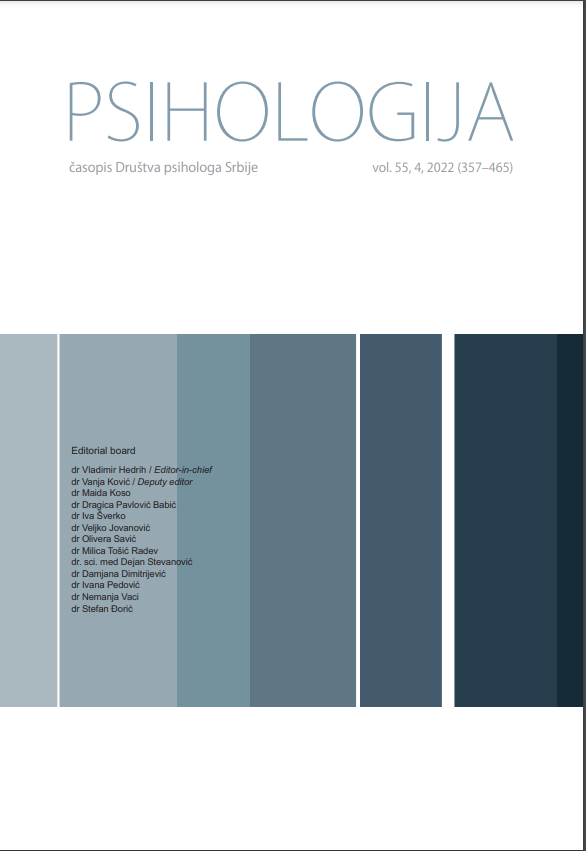Selfish genes or selfish memes: The effect of genetic relatedness versus value similarity on altruism
Selfish genes or selfish memes: The effect of genetic relatedness versus value similarity on altruism
Author(s): Aleksandar Baucal, Aleksandra LazićSubject(s): Individual Psychology, Social psychology and group interaction, Personality Psychology
Published by: Društvo psihologa Srbije
Keywords: selfish genes; selfish memes; helping; kin altruism
Summary/Abstract: Two preregistered quasi-experiments disentangled the effects of selfish genes and selfish memes on participants’ self-reported willingness to help in hypothetical everyday-favor and life-or-death situations. Memes were operationalized as the perceived level of similarity in important attitudes and values between the person participating in the study and a selected target person, assessed and reported by the participant. In Study 1 (N = 761), altruism was highest for siblings, and then for cousins and nonkin; greater memetic similarity was also associated with greater altruism; and the interaction between the factors was not significant. In Study 2 (N = 841), conducted during the COVID-19 pandemic, altruism was highest for siblings, but the same for cousins and nonkin; the effect of memetic similarity was replicated; and the interaction term remained insignificant. Both studies controlled for a range of demographic and social relationship characteristics, suggesting a potentially relevant role selfishness, meme selfishness can also bring about altruism: individuals would rather make a personal sacrifice to help memetically similar than dissimilar others because similar others have a higher chance of spreading the helper’s memes. of future contact probability and emotional closeness. We propose that, similarly to gene.
Journal: Psihologija
- Issue Year: 55/2022
- Issue No: 4
- Page Range: 379-395
- Page Count: 17
- Language: English, Serbian

